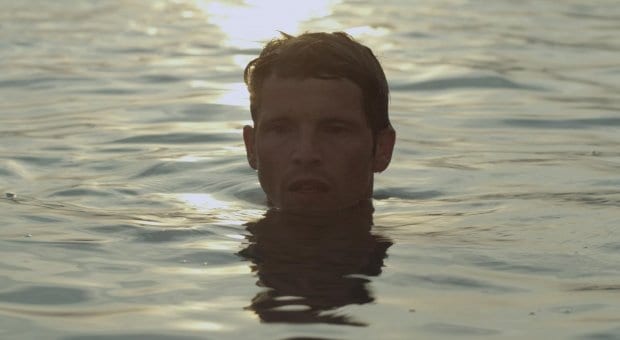Queer films have the ability to transport, delve into the depths, unclog heart valves and convey core experiences. This year’s Atlantic Film Festival’s queer films offer stunning insights into the human condition. Xtra spoke with the festival’s senior programmer, Andrew Murphy, about this year’s must-see movies.
“I always look for a good story and movies that represent our community today, or educate or remind us of where we came from,” Murphy says.
After 12 years at the Atlantic Film Festival, Murphy moved from Halifax to Toronto last year to take on the role of director of programming for the Inside Out Film Festival.
“There is a lot of mediocrity out there that can sometimes have the opposite effect as far as pushing our community forward and giving us something to really bite into.”
This year, Atlantic Film Festival-goers can nibble on Bruno Barreto’s classic 1950s love story between Pulitzer Prize-winning American poet Elizabeth Bishop (Miranda Otto), and Brazilian architect Lota de Macedo Soares (Glória Pires) in Reaching for the Moon. Bishop, in a period of writer’s block, travels to Rio after her old college friend Mary invites her to stay at the estate she shares with her partner, Lota. The visually stunning film won the Audience Award at the 2013 Inside Out Festival in Toronto.
Heralded as the gay Harold and Maude, Canadian filmmaker Bruce LaBruce’s Gerontophilia examines the unexpected and the fringes of desire. Gerontophilia follows Lake and his girlfriend in their yearning for new experiences during their gap year. Lake lands a job at an old-folks’ home and, to his own surprise, falls in love with Mr Peabody, played by Nova Scotia’s own Walter Borden.
“Gerontophilia is a very straightforward, restrained narrative film,” Murphy says. “That’s not to say, of course, given the subject matter, Bruce LaBruce’s trademark explorations of people and topics on the fringe of society are very evident.”
Nearly three hours in length, this year’s big Cannes winner La Vie d’Adèle (Blue is theWarmest Color), which took home the Palme D’Or at Cannes and a special cast prize, is an adaptation of Julie Maroh’s graphic novel The Blue Angel.
Writer/director Abdellatif Kechiche’s film is an intense cinematic tale of 15-year old aspiring teacher Adele, who meets Emma, a blue-haired art student, capturing boundless love, desire and their unhinged sexual exploration. The daring 179-minute French/Tunisian lesbian drama is sure to inspire.
Alan Brown’s Five Dances is a sensual testament to the power of movement. Choreographed by Jonah Bokaer, each dance scene frames Chip, a handsome 18-year-old dance protégé on a scholarship in New York, with four dancers who change the shape of his life. Caught between a sweeping future as a dancer and a hard-luck past, Chip struggles with avoiding phonecalls from his alcoholic mother and sleeping on floors, all the while trying to keep up with the demands of the dance academy.
Polish filmmaker Malgoska Szumowska’s In the Name Of (W Imie) takes a humanistic look at the contradictions of sexuality and Catholicism, engaging with myriad emotions, loneliness, longings and failings. Father Adam oversees a small parish in rural Poland, as well as a centre for troubled teenage boys. The film, which won the Teddy Award for Best Feature at the Berlin International Film Festival, examines desire, deep-rooted faith and reconciliation in a sophisticated and honest way.
Alain Guiraudie’s award-winning French film L’Inconnu du Lac (Stranger by the Lake) is a creepy thriller that follows Franck, a regular to the remote cruising spot for men tucked away on the shores of a lake, who meets Michel, a handsome and dangerous man.
L’Inconnu du Lac took home the Best Director Prize at the Un Certain Regard section of Cannes as well at the Cannes Queer Palm Award at this year’s festival.
Denis Côté’s Vic et Flo Ont Vu Un Ours (Vic and Flo Saw a Bear) follows ex-convict Victoria, a woman in her 60s, on the brink of beginning her new life in a remote sugar shack under the supervision of Guillaume, a sympathetic parole officer.
“We see groundbreaking narratives emerge like In the Name Of or films like Vic and Flo Saw a Bear, where the filmmaker doesn’t see their work as a ‘gay film’ . . . the fact the two leads are lesbians is incidental to the work,” Murphy says. “We are fortunate to continue to see a marked change in queer cinema over the last few years. Queer cinema is growing up.”
Atlantic Film Festival
Thurs, Sept 12–Thurs, Sept 19
Various venues and times
atlanticfilm.com

 Why you can trust Xtra
Why you can trust Xtra


